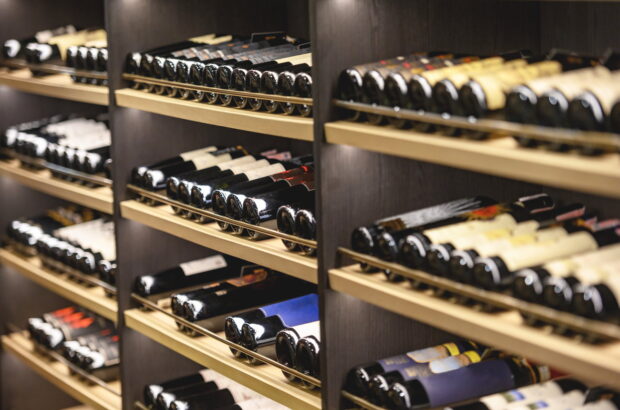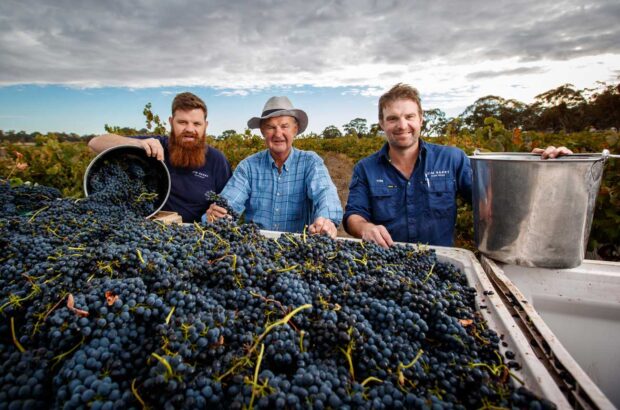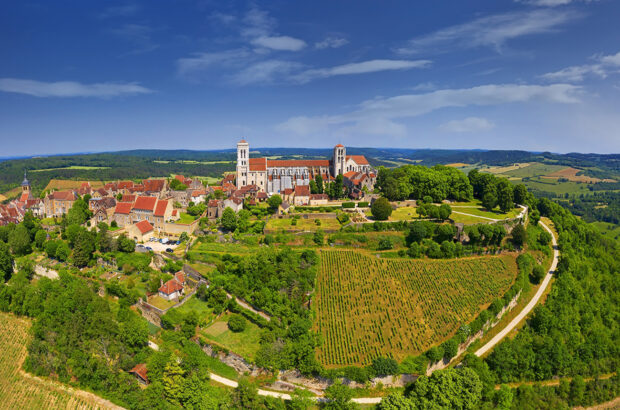Picture the scene: you’re lying in a hammock, swaying gently in the dappled shade of the palm tree towering above you. The ocean rolling onto the shore is your soundtrack. The hot, heavy-air atmosphere wraps around you like a blanket. Someone approaches with a tray of cooling cocktails. A Piña Colada with an icy sheen on the glass? A refreshing Dark ’n Stormy? An exotic Singapore Sling? There are plenty to choose from, because tropical days and exuberant cocktails go together like birds of a feather.
For a lot of people, the most common category that springs to mind when thinking about drinks from exotic locales is tiki. These tropical cocktails are usually rum-based, fruity and exuberant in taste and personality. They include such classics as the Mai Tai, Piña Colada and Zombie.
However, there has been a reassessment of tiki venues as a whole within the drinks trade recently, prompted by valid arguments against the cultural appropriation and disrespect of Polynesian culture that’s common in a lot of these bars. What used to be seen as fun escapism is now reframed through wider understanding and education. Did you know that tiki mugs are actually made in the form of Polynesian gods, or that imagery of Pacific Islanders that sometimes appears in tiki bars might be based on racist tropes?
While most of this misappropriation of tiki motifs was carried out unwittingly, as education increases, bars and bartenders are moving away from the tiki label and aesthetic. Instead, they’re embracing a tropical philosophy.
‘Appreciation and inspiration are nice, but when it’s not collaboration, it’s theft,’ explains Chockie Tom, an Indigenous American bartender who does a lot of work in fostering cultural empowerment in the drinks industry. ‘You can create an immersive escapism experience without having to steal from people.’
One venue that achieves this new balance is Kiki Lounge, a tropical bar on the Isle of Man. Its menu offers the classic cocktails you would see served on your holiday in the Caribbean, as well as the team’s own original creations. So what qualifies a drink as being tropical?
‘I think there are theatrics to tropical cocktails, in the way the bartender is presenting the drink,’ says Drew Fleming, co-owner of Kiki Lounge. ‘Some of that is the techniques – such as using a bamboo swizzle stick or flash blending [using an upright mixer, a technique that requires less ice]. Tropical garnishes, flamboyant colours – and there’s almost a campness to the drinks.’
After some demanding ‘research’ of our own, here’s a selection of five tropical cocktails to try mixing at home, with origins ranging from Trinidad and Cuba to Malaysia and Brazil…
Five tropical cocktails to try
Queen’s Park Swizzle

Credit: Louise Haywood-Schiefer
A drier, more complex relative of the Mojito, the Queen’s Park Swizzle hails from Trinidad, where the Queen’s Park Hotel opened in 1895, attracting the glitterati of the day. This drink calls for Demerara rum from Guyana, which takes its name from the Demerara river. You can use either light or dark rum in this cocktail. A light option, such as El Dorado 3 Year Old (£22-£29/70cl), gives a drink that’s more akin to a Mojito, but with less sweetness and some added spice from the Angostura bitters. A dark rum such as El Dorado 5 Year Old (£24-£35/70cl) results in a cocktail with more gravitas flavour-wise – a deeper complexity that I personally find more satisfying. This recipe traditionally calls for it to be mixed with a swizzle stick – a long stick with a splayed end that’s placed in the bottom of the drink. Roll the stick between the palms of your hands to ‘swizzle’ it and churn the drink. Alternatively, the flat end of a bar spoon can be used to stir the drink.
Ingredients: 8-10 mint leaves, 25ml Demerara sugar syrup (1:1)*, 30ml fresh lime juice, 60ml Demerara rum, 4-6 dashes Angostura aromatic bitters
Glass: Collins
Garnish: Mint sprig
Method: Muddle the mint, sugar syrup and lime juice in the bottom of your glass. Add the rum and bitters, and fill the glass three-quarters of the way up with crushed ice. Either swizzle with a swizzle stick, or churn (stir) with the flat bottom of a bar spoon. Fill the glass with more crushed ice and garnish.
Jungle Bird

Credit: Louise Haywood-Schiefer
‘The Jungle Bird has seen a huge resurgence [at Kiki Lounge], probably the biggest of any tropical cocktail of the last few years,’ says Drew Fleming, co-owner of Kiki Lounge, who credits part of this rise in the drink’s popularity to the marketing power of Campari (£15.50 £27/70cl), an ingredient in this moreish cocktail. Indeed it’s the Campari that separates the Jungle Bird from most other tropical drinks – the bitter undertone adds welcome complexity to what otherwise would be yet another fresh, fruity rum drink. This is a tropical drink for grown-ups, perfect to enjoy on hot, dark nights at the end of a sunny day. Created at the Aviary Bar in the Kuala Lumpur Hilton in the 1970s, it’s the most famous cocktail to come from Malaysia. The recipe calls for dark rum – Gosling’s Black Seal (£24-£37/70cl) and Black Tot (£38 £53/70cl) both work really well.
Ingredients: 50ml dark rum, 15ml Campari, 50ml fresh pineapple juice (not from concentrate), 25ml lime juice, 15ml sugar syrup (2:1)*
Glass: Rocks
Garnish: Maraschino cherry
Method: Shake all ingredients with ice and strain into a glass filled with crushed ice.
Frozen Strawberry Daiquiri

Credit: Louise Haywood-Schiefer
A variation of the Daiquiri – the classic Cuban cocktail that mixes white rum, lime juice and sugar syrup to piquant, lipsmacking effect – this is the unashamedly silly, irresponsible little brother who’s simply here for a good time. The simplicity in making this cocktail is brilliant – just dump everything into the blender and combine until you have an aerated, ‘slushie’ texture. There are two secrets to making an excellent Frozen Strawberry Daiquiri: getting a decent rum and using the best, freshest, most delicious strawberries. Havana Club Añejo 3 Year Old (£19-£27/70cl), Banks 5 Island white rum (£36.50-£44/70cl) and Planteray (formerly known as Plantation) 3 Stars (£24.50-£37.50/70cl) are all great options.
Ingredients: 50ml white rum, 15ml lime juice, 4 medium-sized strawberries, 10ml sugar syrup (2:1)*, 1 cup cracked ice
Glass: Coupe
Garnish: Strawberry
Method: Place all ingredients in a blender, blend until everything is properly combined into a slushie texture and pour into your glass.
Caipirinha

Credit: Louise Haywood-Schiefer
As synonymous with Brazil as samba and carnival, the Caipirinha is this South American country’s national drink. Have one and you’re immediately transported to Copacabana beach. Have two and you’ll be transformed into a beach volleyball champion. Honest. The recipe calls for cachaça, a spirit made from fermented sugar cane that is pot-distilled. It’s a rustic, refreshing cocktail that has no time for fancy techniques such as straining – just dump everything in your glass and drink it! Speaking of glasses, some Caipirinha recipes out there call for a highball to be used. Having canvassed bartender opinion, this is incorrect – large rocks glasses are the vessel of choice. Some even advocate for a rocks glass that fits the shaker tin, dispensing with the need to even empty the cocktail into a fresh glass.
Ingredients: 50ml cachaça, 1⁄2 lime cut into 8 pieces, 3 barspoons of sugar
Glass: Rocks
Garnish: None
Method: Muddle sugar and lime together in the bottom of a mixing glass. Add ice and cachaça, give everything a quick shake to combine, and empty the contents of the shaker into your glass.
El Diablo

Credit: Louise Haywood-Schiefer
A devilishly delicious drink. First appearing in a Trader Vic recipe book published in the 1940s, this much-underrated drink ticks all the boxes for a winning tropical cocktail. It’s boozy, complex, delicious and refreshing. The sum of the finished drink is bigger than its constituent parts: a punch of tequila is enhanced by the juicy blackcurrant sweetness of crème de cassis, cut through with the lime and rounded off with a pleasing charge of ginger beer. Either blanco or reposado tequila can be used. Blanco gives an earthier, peppery flavour; while reposado leans slightly towards the sweeter side. Make sure to use ginger beer rather than ginger ale – the latter tends to be lighter in flavour, which can lead to a rather insipid drink. Ginger beer, on the other hand, gives a pleasing spicy and refreshing depth to an El Diablo.
Ingredients: 60ml blanco or reposado tequila, 20ml crème de cassis, 20ml lime juice, ginger beer to top
Glass: Collins
Garnish: Lime wedge
Method: Shake first three ingredients over ice, strain into an ice-filled Collins glass and top with the ginger beer. Garnish.

From left: Drew Fleming and Jamie Lewis, co-owners of Kiki Lounge
The whip shake Roll up, cocktail geeks. Here’s a cocktail-making technique for you to add to your repertoire: the whip shake. ‘It’s synonymous with tropical cocktails,’ says Drew Fleming. ‘Instead of filling your shaker all of the way with ice, you just put in three cubes or a small amount of crushed ice. What that does is to add a minute volume of dilution, but what you’re getting is a higher rate of aeration.’
Our thanks go to Fino at Fazenda, Bishopsgate, in the City of London, which very kindly hosted the photo shoot for this story.

Located on the ground floor of Fazenda Bishopsgate in London, Fino at Fazenda offers a stylish and elegant setting to enjoy exquisitely crafted creations inspired by the greats of Latin American cocktail bars. If exquisite wine or refined libations are preferable to your palate, you can find a handpicked selection to sample. This cosmopolitan bar exudes finesse in the heart of the City, combining rich, walnut-panelled walls with luxurious furnishings among ambient lighting, making for an experience to remember.











